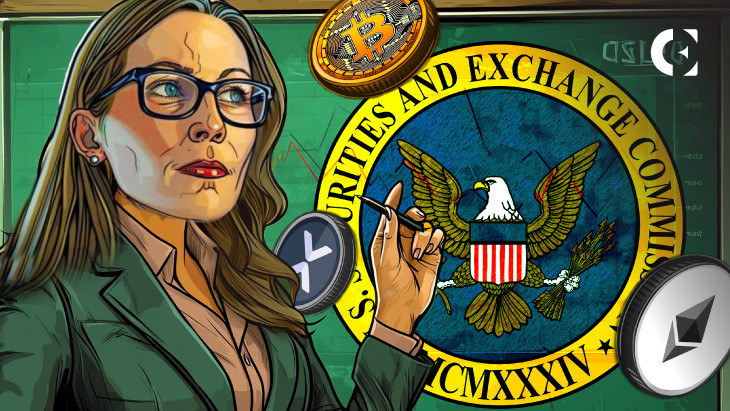U.S. SEC Commissioner Hester Peirce believes there is vagueness in how the commission defines crypto asset or digital asset securities. Peirce made this point during an interview with the Thinking Crypto podcast, highlighting the origin of the term and the related linguistic challenges.
However, the SEC Commissioner clarified that some crypto assets could still be considered securities. She suggested that tokenized versions of traditional stocks could exist in the future, but this wouldn’t alter their classification as securities. The same would apply to tokenized bonds, which remain securities despite their tokenization.
Read also: Confusion Grows as SEC Flip-Flops on ‘Crypto Asset Securities’
Peirce believes it’s crucial for people creating crypto assets to ensure they fully understand the legal implications of their products. She noted that some crypto asset creators may be dividing an existing asset or introducing something that could generate payments for individuals.
Meanwhile, Peirce stressed the importance of digital asset creators considering whether their product might qualify as a security. She argued it’s incorrect to assume that no crypto asset could be classified this way. Moreover, she emphasized the need for the SEC to be more specific in defining digital assets.
Read also: US Judges: Crypto Tokens Not Inherently Securities
Why Digital Asset Creators Should Pay Attention to SEC Regulations
Peirce’s comments come shortly after SEC Chair Gary Gensler highlighted the commission’s efforts to revise the definitions of exchange and alternative trading systems. Gensler addressed the U.S. Treasury Market Conference, mentioning the SEC’s plan to redefine the term “dealer.”
Gensler explained that this change aims to clarify the role of market participants, such as principal trading firms, that use algorithmic and high-frequency trading strategies. These changes, proposed initially in 2022, have sparked opposition within the crypto industry due to concerns about their potential impact on digital asset trading.
Disclaimer: The information presented in this article is for informational and educational purposes only. The article does not constitute financial advice or advice of any kind. Coin Edition is not responsible for any losses incurred as a result of the utilization of content, products, or services mentioned. Readers are advised to exercise caution before taking any action related to the company.
 coinedition.com
coinedition.com
